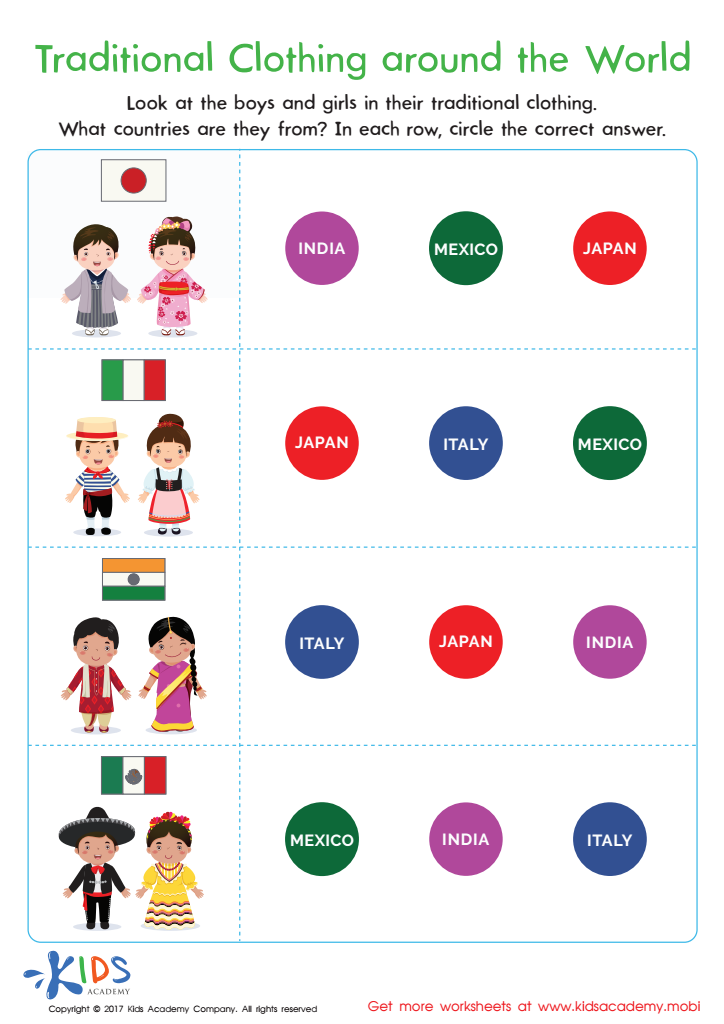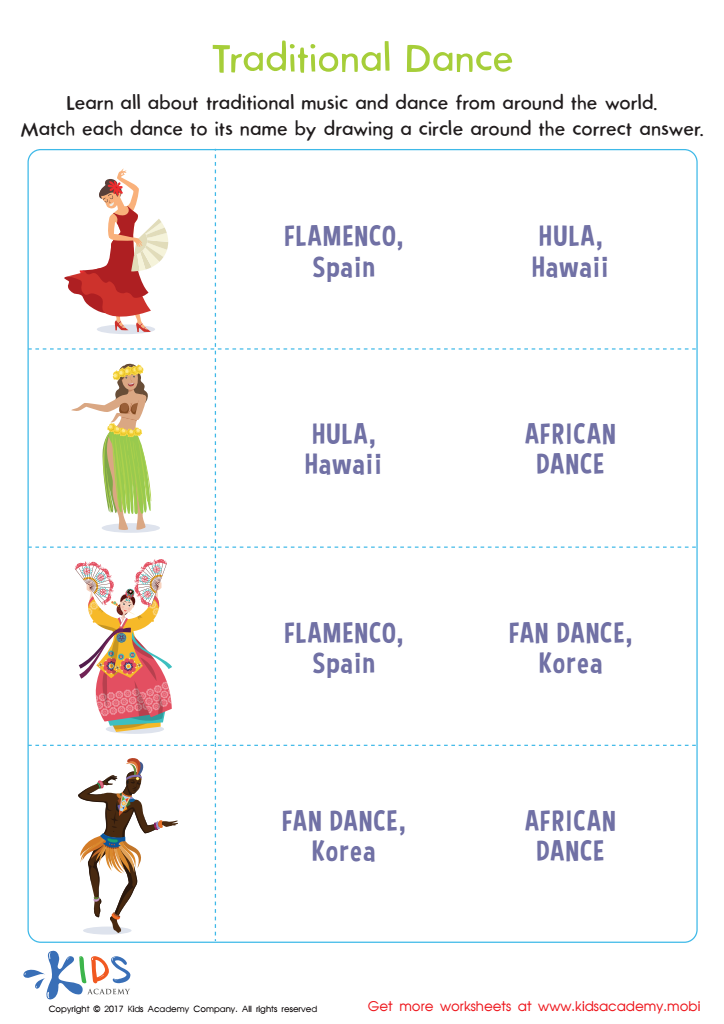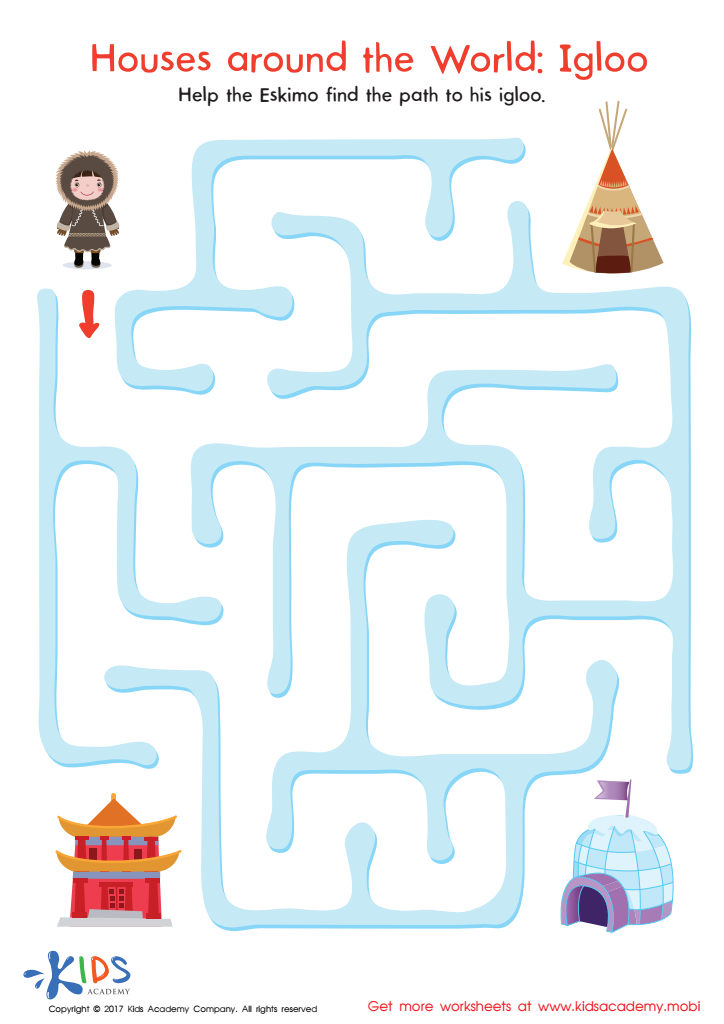Cultural awareness Normal World Around Us Worksheets for Ages 7-9
3 filtered results
-
From - To
Our "Cultural Awareness Normal World Around Us" worksheets for ages 7-9 offer engaging activities designed to help children understand and appreciate diverse cultures. These printable worksheets from Kids Academy foster global awareness and empathy through fun exercises that explore different traditions, languages, and customs. Perfect for classroom and homeschooling environments, each worksheet encourages young learners to celebrate cultural diversity and build respectful relationships. By introducing fundamental cultural concepts in an age-appropriate manner, these resources equip kids with the skills to thrive in a multicultural world. Ignite curiosity and promote inclusivity with our thoughtfully crafted cultural awareness worksheets.


Traditional Clothing Worksheet


Traditional Dance Printable


Houses Around the World: Igloo Printable
Cultural awareness is crucial for children aged 7-9 as it helps lay a foundation for their understanding of an increasingly multicultural world. During these formative years, children begin to notice and question differences and similarities around them. By fostering cultural awareness, parents and teachers can teach children to appreciate diversity, cultivate empathy, and adopt a more inclusive mindset.
Cultural awareness involves understanding and valuing the traditions, customs, and perspectives of various cultures. This-awareness equips children to navigate the global community with sensitivity and respect. When children are exposed to diverse cultures early on, they are less likely to develop harmful stereotypes and more likely to build meaningful relationships with people from different backgrounds.
In schools, culturally responsive teaching can create a more engaging and relevant curriculum that reflects the experiences of all students. It promotes critical thinking and encourages students to look at issues from multiple perspectives. Parents can reinforce this learning at home by celebrating different cultural festivals, reading diverse books, and encouraging curiosity.
Ultimately, by integrating cultural awareness into daily teaching and parenting, we prepare children to become compassionate, open-minded individuals. These attributes not only benefit their social interactions but also contribute to a more harmonious and understanding society.
 Assign to My Students
Assign to My Students


.jpg)













